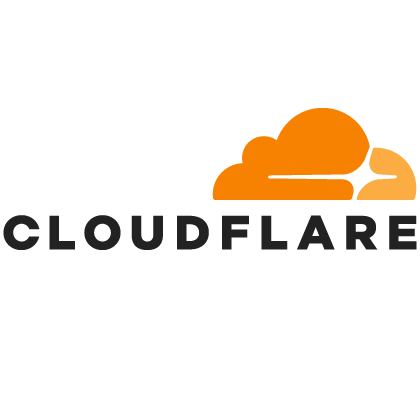Since I'm managing security tools and focusing on email security, Cloudflare mainly helps me take care of DNS records that are related to email security, such as SPF, DMARC, and DKIM. That's the main scope of my interest there. I'm monitoring those records, checking if somebody has altered them, and gathering evidence if needed to warn them not to do that anymore.
Cloudflare is a great product with many useful features. A colleague of mine is leveraging the API to get all the records periodically. We're gathering them to review if everything is set up properly without the need for manual review. I appreciate the additional details about the statistics since the DKIM enablement process requires visibility over whether the DKIM keys are being used and if there were any queries against them. The statistics part lets me briefly validate if the DKIM record is in use because over time, the records stop being used and aren't cleaned up because nobody requested that.
The reporting and auditing tools are important in the use cases I mentioned earlier. There are many features I do not configure but know exist, such as web access firewall to set up accesses to certain DNS records. We were also using the Workers part of Cloudflare to share data from Cloudflare to an external app called Salt, which helped us understand where our API endpoints are in our estate. Based on that, we got information about endpoint locations and unusual API queries.
It simplifies management because you can create domain groups and associate them to countries, allowing them to manage them independently. It helps me understand which country might be responsible for specific domains. It's a great product because it's scalable, has great coverage, and is mature with good defenses against DDoS attacks.
I'm not directly configuring the WAF in Cloudflare because another team manages that, but I see they are adding more features to it, which is making us more secure.
Regarding DNS services in Cloudflare, I believe they are good, but I would consider doing some testing from external places to measure response time and compare performance.
I'm not sure if we are using the load balancing capabilities in Cloudflare on a larger scale. We are using the proxy capability, which I forgot to mention earlier. Most of our DNS records that are presented to the internet are proxied whenever possible, providing another layer of defense from our perspective.
It's challenging to comment on specific features I would want to see included in the next Cloudflare releases because I haven't investigated many existing features. I think many capabilities are already there. A feature I would appreciate is some kind of protection for modifying different types of entries. For example, protection against creating duplicated DMARC entries would be beneficial, along with setting permissions to restrict modification of DMARC or SPF records.
From a management perspective, this would be valuable because while DNS teams add records, in larger enterprises I've noticed that requests going through the ticketing system get implemented as requested, even when users don't always know how to do it properly. They submit unjustified and improper requests that get implemented because someone followed the ticket instructions. Eventually, things go sideways and require fixes when it would have been easier to prevent the issue initially.
I haven't investigated the analytics and insights into user interaction or security vulnerabilities in Cloudflare much further beyond the basic statistics regarding DNS record requests. I'm using the basic API to see if the record was used or not, when it was recently used, and what the usage was over the last week or month period. This helps me understand if the record is still being used or if we can remove it.
Cloudflare is the only solution I've worked with here for DNS and DDoS protection. I do not recall any other tools that we have for these purposes.
Pricing, setup cost, and licensing cost for Cloudflare are totally not in my scope so I do not know the costs. I only know that there are two tiers of WAF, and we are using the basic, cheaper one rather than the more advanced version. There is some differentiation where some features are available on a general basis, but others require additional licensing.
I would advise users looking into implementing Cloudflare in their environment to understand the features before implementing it so they can use all of its potential. On a scale of 1-10, I rate Cloudflare a 9 out of 10.
